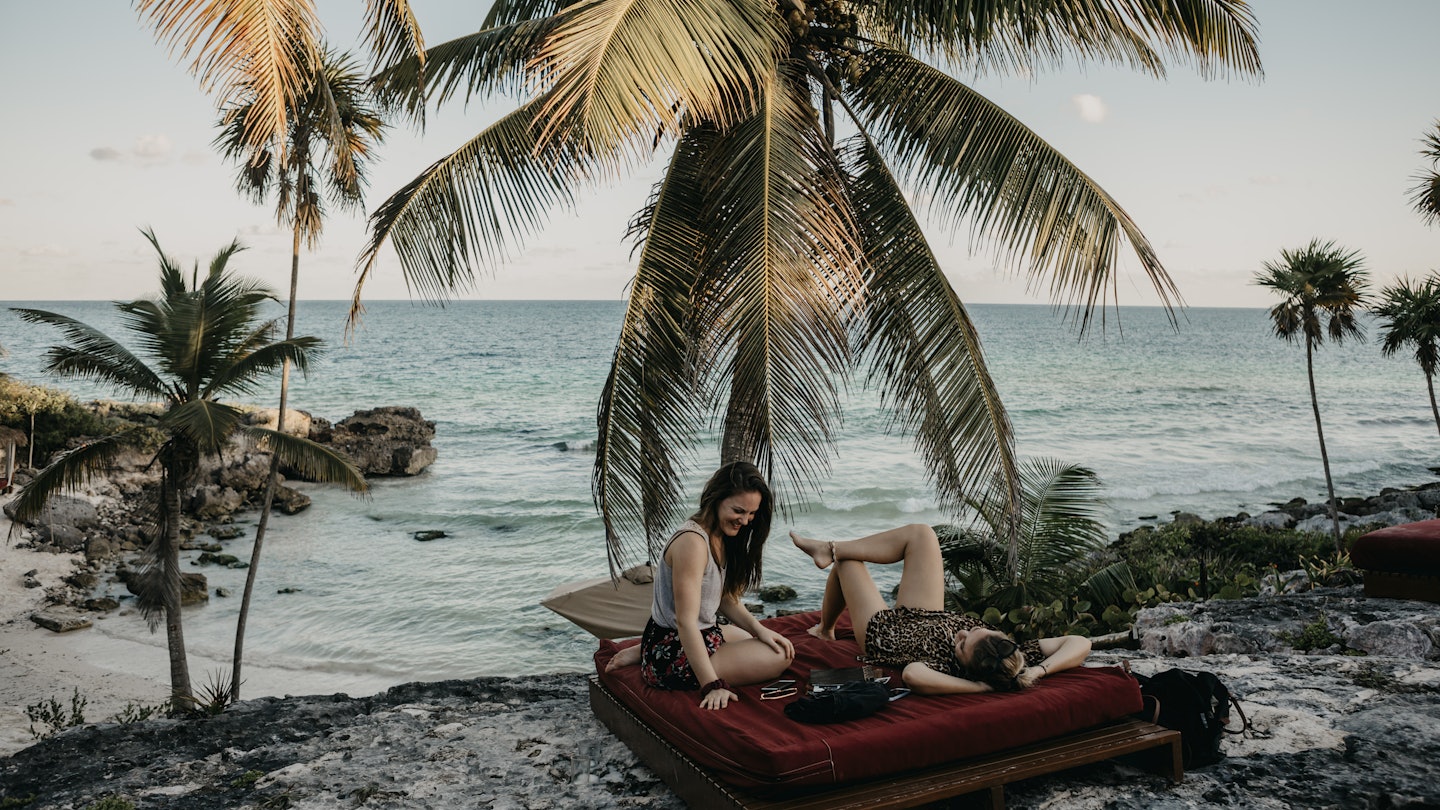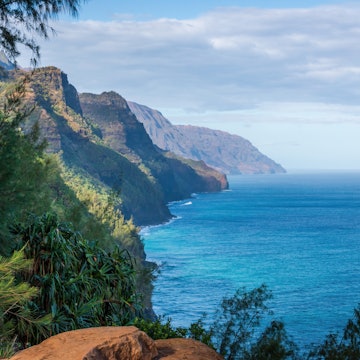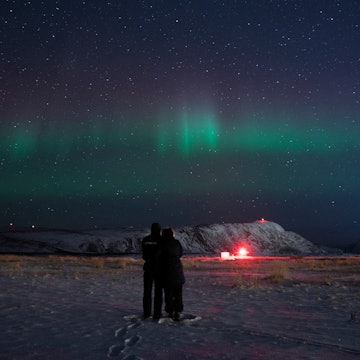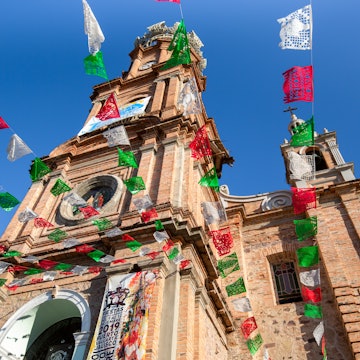

While travel has come to a halt in many regions, Tulum remains popular with digital nomads © Getty Images/Westend61
“Everyone’s in Tulum right now”. I’ve seen or heard this comment daily since the pandemic began. A one-time digital nomad, right now I’m now writing this on a cold rainy day in locked-down England and scrolling through Instagram, wondering why every travel influencer on my feed seems to be living the dream in Mexico.
Pandemic fatigue is well and truly taking its toll; but why aren’t some travel influencers, bloggers and writers at home and facing the same lockdowns their audiences are enduring?
As a travel writer, blogger and long-term digital nomad, I could jump on a plane, say it’s for work, and be on a beach in Mexico drinking an ice-cold Corona in under 24 hours. Right now, though, I find that to be extremely difficult to justify. Instead of booking a flight, I’m going to be cracking open a bottle of mezcal and ordering in some tacos.
Are travel influencers working or just “showing off”?
Pandemic travel was thrown into the spotlight in the United Kingdom, when the Home Secretary denounced influencers for “showing off” in Dubai while the rest of the country was in lockdown. Tabloids and newspapers have specifically targeted high-profile celebrity influencers who have been justifying travel to destinations such as Dubai or Tulum for work purposes. The same debate, though, has been raging in the travel blogging community since the pandemic began. The question is, are travel influencers just “showing off”, or are there legitimate reasons to be traveling right now?

Professional travel blogger Chloe Gunning, the founder of Wanderlust Chloe, says that it’s not an easy question to answer: “This is a tricky topic as lots of people are now considered travel influencers, from glossy reality show contestants to hard-nosed travel journalists”. Chloe is clear though when she says: “No, I don’t think it’s ok to travel for work if your work is simply to get a pretty picture for Instagram.”
For content creators that rely on travel as their primary source of income, difficult decisions have had to be made. Chloe made the decision to stay in the UK throughout the pandemic. “Most people would assume that travel bloggers who can’t travel, aren’t able to do their jobs”, says Chloe. “I adapted to life at home by focusing on writing posts I’d wanted to write but never had time to. Then my partner and I focused on two new ventures: a brand-new travel blog about travelling within Great Britain, and an Etsy store to sell our travel photography as prints”.
Sarah Richard, travel content creator and founder of online community Girls That Scuba, also settled back in the UK for the pandemic. Sarah says: “I’m sure there are ways it can be safe to travel, but I don’t think morally it is the right thing for people to be doing during a global pandemic if there is a chance they can spread the virus”.
Sarah explains how she’s managed to move away from promoting international travel, by focusing on building online courses and selling scuba gear to her community of divers. Sarah says, though, that there are “blurred lines” when talking about “traveling for work” at the moment. “Could they have created the content from home?”, she asks. “When it comes down to traveling just to ‘inspire’ their audience, it’s a no from me. If it’s because they need to pay their rent and take a paid opportunity, then that is a different situation.”
Alex Reynolds, who runs the travel blog Lost With Purpose, has been outspoken on social media and Instagram when it comes to the way certain travel influencers have been ‘influencing’ during the pandemic. Reynolds says: “If someone is invited to a specific destination, that's work — whether or not they should accept it, how they act when they're there, and the ethical questions about promoting travel now are another (complex) discussion. But hopping on a plane to Mexico just for the sake of ‘creating new content’? That work is about as essential as the business trips we've all replaced with Zoom”.
The problem isn’t traveling, but taking responsibility
When the coronavirus outbreak became a pandemic nearly a year ago, I’d just arrived in Oaxaca, Mexico. I was ready to settle down for the near future (read: three months, for a digital nomad). I wanted to spend the mornings learning Spanish and the afternoons researching (read: eating) mole.
Things escalated, rapidly. Travel insurers weren’t covering COVID-19, borders were quickly closing, and my visa wasn’t going to last forever. I made the tough decision to go home. I made it over to the Atlantic coast – wondering if this was the end of my travel writing career – and caught the last TUI flight out of Cancun.
I’m always tempted to book a flight back to Mexico. After all, Mexico is allowing travelers to enter; if we all wear masks and follow the rules, then what’s the problem?
As Alex tells me, the problem isn’t influencers traveling, it’s influencers not following the rules. “By now, we know that travel can be relatively safe for locals and travelers if people take responsibility seriously: quarantining, wearing masks as advised (not under your nose, hint hint), not eating indoors or in crowded places, not meeting up with every casual acquaintance under the sun”, says Alex. “Problem is, the pandemic has taught us that people aren't responsible”.
Part of the reason I returned from Mexico was not wanting to put extra strain on local resources, and strangely, my actions were somewhat validated when I did become seriously ill with COVID-19 at the start of this year. Unfortunately, certain popular travel destinations, including Mexico, just don’t have the infrastructure to deal with a lack of responsibility during a pandemic. Mexico now has one of the highest mortality rates in the world, yet there are still high numbers of tourists there.

So should travel influencers be advocating travel to a destination, like Mexico, that is struggling to cope with the pandemic? I’d say, no.
There are, of course, important arguments for traveling and inspiring with new content. As Chloe remarks, “So many destinations rely on tourism and as a result have had their economies decimated over the past 12 months”. But even when the pandemic is under control, there’s not going to be a ‘normal’ to go back to. As travel content creators, we have to adapt now, even if holdouts like Tulum aren’t ready to let go yet.
As Alex asks, “Are influencers willing to sacrifice breezy aesthetics for public responsibility? It sounds dramatic, but for people working in and around the tourism industry, the answer to that truly could be a matter of life or death”. Sarah is a little more optimistic. “Yes, it is hard to stay relevant, and it is hard to earn income as a travel blogger at the moment, but it is not lost forever, our time will come once again”.
You may also like:
Opinion: Why I believe digital nomads are ruining travel
Everything you need to consider before becoming a digital nomad
Instagram's impact on travel













